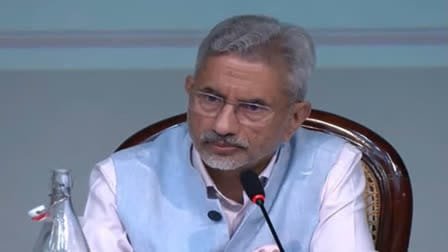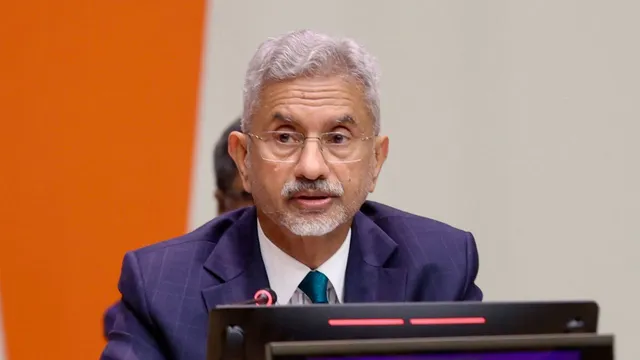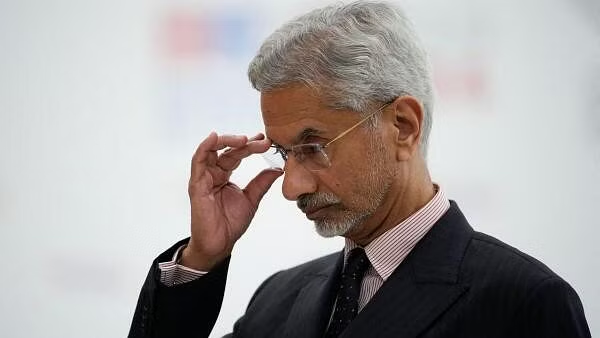The Highlights:
External Affairs Minister S. Jaishankar in a fresh address, put forth his strong assertion of strengthened India’s posture towards terror that has reflected change in the policy since the devastating attack on 26/11 Mumbai. He was talking ahead of enhanced national as well as worldwide conversations around security and matters of counter-terrorism, bringing attention towards India’s shift in approach to terror threats most of them being cross-border.

Jaishankar’s statement brought back into focus the country’s reaction to the 2008 terror attacks in Mumbai, against the more stringent measures after later incidents – Uri and Pulwama. His comments underscore a sea-change, in which India can no longer be said to be in a “defensive era” but now has zero tolerance for terror.
The 26/11 Mumbai Attack: Turning Point
It was a shock to the world for 60 hours of Indian siege that ended up in the killing of more than 166 and wounding over 300 in one of the deadliest attacks the nation has ever experienced. A Pakistan-based outfit Lashkar-e-Taiba had staged this attack that acted like a wake-up call to India to change its tactics toward terror threats. The option of direct retaliation at the time was denied by India, an impression Jaishankar is suggesting creates the notion that India is “punched” but does not deliver immediate impact.

According to Jaishankar, measured discussions and analysis at the time were the government approach, though comprehensive, failed to convey a strong deterrent message to perpetrators across the border.
Policy Shift: A Firm Stand Against Terrorism
Jaishankar stated that following the 26/11 episode, the nation responded better, more vociferously than ever, to a potential cross-border threat. One can argue that there lies a world of difference in the contrast between this ‘restrained’ reaction, as India called it initially, at 26/11 versus the sharper ‘retorts’ immediately initiated after Uri, in 2016, and Pulwama, in 2019. Thus, by giving a shift from India moving from ‘reactive,’ ‘helpless’, becoming an active, ‘no-nonsense’ policy country, he explained this paradigm shift where every terror operation on the soil of Indian would result in some determined retaliation.
Jaishankar elaborates that such a response would be required not only at present for immediate security but later also as a deterrent against such an event happening again. The policy ensures that even if they cross the borders, perpetrators are brought into the accountability radar. “If a 26/11-like incident happened now, the reaction would be much different,” he says, pointing to India being ready to act if things were to repeat themselves.
Global Counter-Terrorism and India’s Role
These developments, Jaishankar said establish a very strong case for India’s leadership role in countering terrorism across the world. And once again reiterated India’s commitment to exposing terrorism and those who support it due to the respect India has gained internationally as a consequence of its response. He also went on pleading that attacking the direct attacker has seen an equal fight against such supporters and the safe haven for such terror and boasts of this process having propelled India to build a deterrent policy required in the pursuance of maintaining balance in the region.
India has shown border steps that deal with disputes with its neighboring country China at the Line of Actual Control in Ladakh. Resuming patrolling at areas such as Demchok and Depsang, which used to be hotspots in the military standoffs is yet another dimension of the policy that lowers regional tension.
Impact on Indo-Pak Relations
Jaishankar spoke about Indo-Pak ties in his address. This is a highly complex bilateral relationship. Not speaking out against any wrongs, he sent the message across that India could have patience only up to an extent with cross border terrorism. He said that unabated support for anti-India terror activities from the Pakistani soil remains a persistent challenge. He also referred to the current policy of decisively acting whenever national security has been compromised.
Jaishankar’s words indicate that India is ready to accept tensions openly and that it needs peace with its neighbors, but will not tolerate provocations. Such provocations, he commented, would be answered by responses that send a “clear and direct message” to those responsible, preventing further aggressions.
The Road Ahead: A New Era in India’s Counter-Terrorism Policy
The Indian strategy for countering terrorism, Jaishankar declared, was no longer only defensive but actually took on a more proactive posture against the networks and structures of support that fostered terrorism. In fact, international cooperation would also be one of the keys, said Jaishankar, in discussing how India works in tandem with other nations within the United Nations to present the collective response needed.
Jaishankar emphasized a proactive policy that symbolizes a national commitment so that such tragedies don’t occur again. When Jaishankar reiterated the stand of the government by saying that India is committed to counter-terrorism, he made it sound like India stands tall on the world platform in fighting terrorism.
Conclusion: The Message of India to the World
His statement further clarified that India’s policies have undergone a significant metamorphosis since the dastardly attack on Mumbai on 26/11. India is ready and determined to protect its citizenry and defend its sovereignty against any potential danger or threat, using zero-tolerance and swift-retaliatory policy measures. A policy now integrated into its external diplomacy, India lets the international community know that India shall not budge on issues of security, for whatever reason, in this context, combating terrorism.
Jaishankar’s statement emphasizes a policy thrust in consonance with emerging trends in global security while simultaneously reaffirming India as an indispensable partner in combating terrorism at the global level. “The days of wait and watch for India are gone, and we would like to safeguard and ensure our national security,” he added.
For Latest News Updates Click Here
